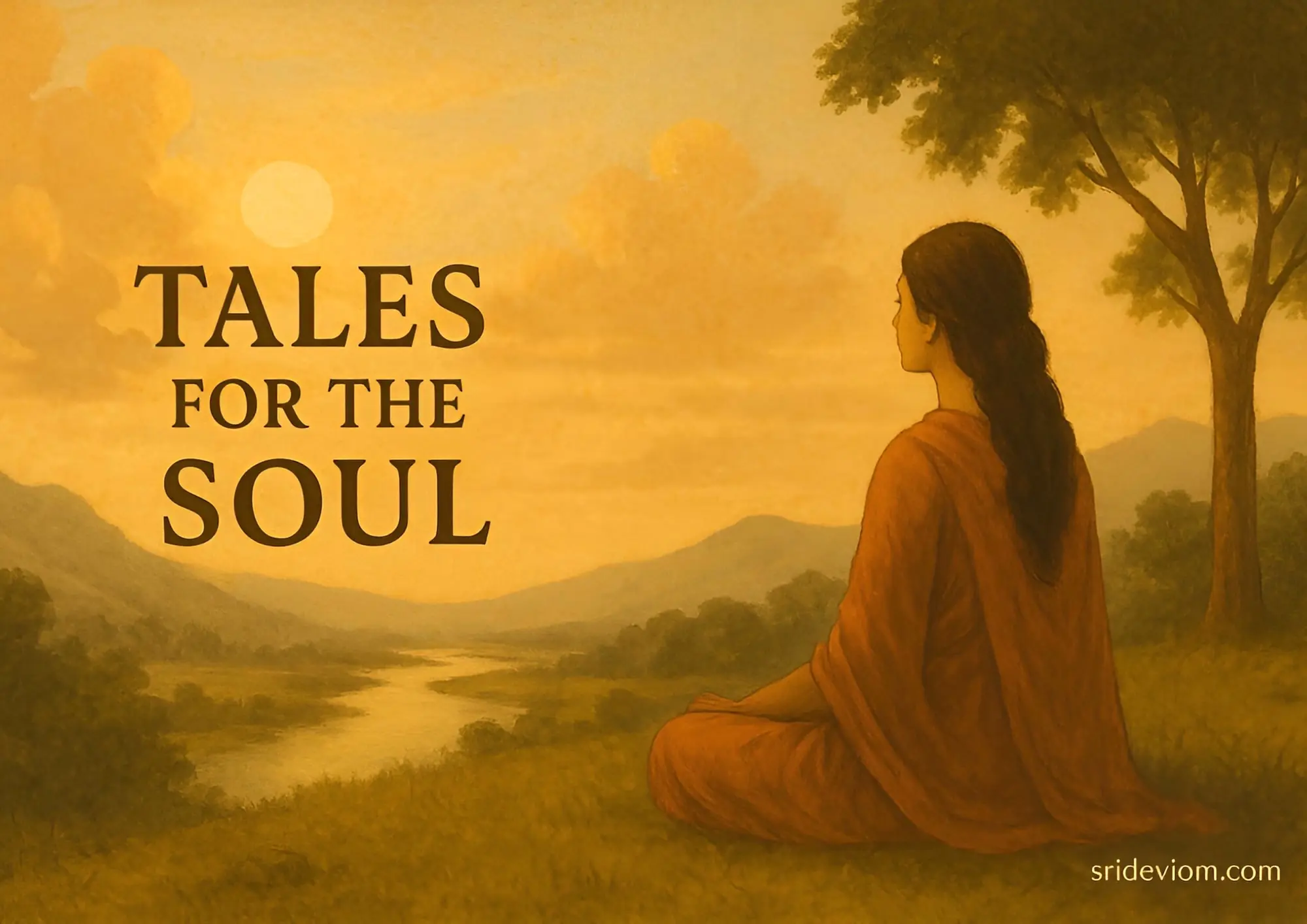Jayadeva: The Saint-Poet

The revered saint and poet, Jayadeva, was born in a serene village on the Indian subcontinent. From early childhood, he showed a great passion for the divine and a natural gift for music and poetry. Renouncing worldly life while still young, he became a wandering ascetic.
Wherever he went, Jayadeva sang the glories of Lord Krishna with such devotion that people flocked to hear him. His music wasn’t merely a performance; it was an experience. His songs carried a sacred presence beyond words that drenched listeners in bhakti and left them yearning for God.
This continued for many years until, during his travels, Jayadeva visited the residence of a devout priest named Deva Sharma. The priest’s graceful daughter, Padmavati, was deeply devoted to Lord Krishna. Many sought her hand, but she had chosen to remain unmarried. Yet, when she saw Jayadeva, she recognized a divine soulmate in him.
Perceiving a higher will at work, Deva Sharma offered Padmavati’s hand in marriage to the saint. Initially, Jayadeva hesitated. A life of renunciation was not easily laid aside.
Still, something about Padmavati’s inner light and purity moved him deeply. Accepting the priest’s offer, he entered into marriage — but even as husband and wife, they lived as near-renunciants, their love anchored only in the Lord.
It was during this time that Jayadeva began composing his masterpiece, the Gīta-Govinda, a poetic celebration of the Divine Love between Lord Krishna and Radha. Rich in emotion, it waved between opposites: longing and fulfillment, separation and union, pain and ecstasy. Each verse emitted the mystical fragrance of divine love.
As his work neared completion, one daring verse arose in his heart — Krishna, the Supreme Lord, bows at the feet of his beloved Radha.
Jayadeva paused. Could he write such a thing? Was it irreverent? Was he crossing the limits of devotion? Unsure, he left the verse unfinished and stepped out to bathe in the nearby river.
A while later, when he returned, he was left stunned — that very verse had already been written; that too, in his own hand.
Startled, he turned to Padmavati. But she appeared equally puzzled. “Have you forgotten?” she asked gently. “You came back soon after leaving, wrote the verse yourself, and went out again.”
Jayadeva fell silent. Had he written it in a trance, lost in divine absorption? Or had something beyond human comprehension taken place? Had his blessed wife seen the Lord, who Himself came to complete the song?
Many questions remained unanswered, but a deep stillness descended upon him. Tears welled in his eyes as his mind moved away from fears of the world and the chatter of ignorance.
In that moment, he understood what words could never express: Radha and Krishna were not two. They were one Essence — Divine Love in eternal play, appearing as dual for the joy of union.
With this realization, Jayadeva’s surrender became absolute. The saint-poet who sang of love had merged in mind with the very Love he adored.
A scriptural tale, retold by Sri Devi Om.
Disclaimer: “Tales for the Soul” are fiction inspired by scriptural and moral themes. They serve as contemplations on Dharma — goodness, integrity, and grace — that pave the way to the divine. All characters and events portrayed in these are fictitious representations.




